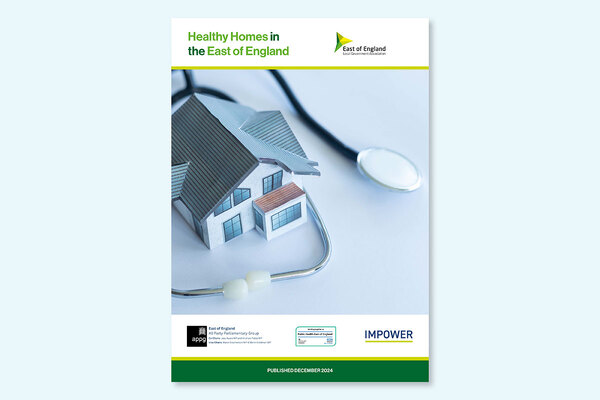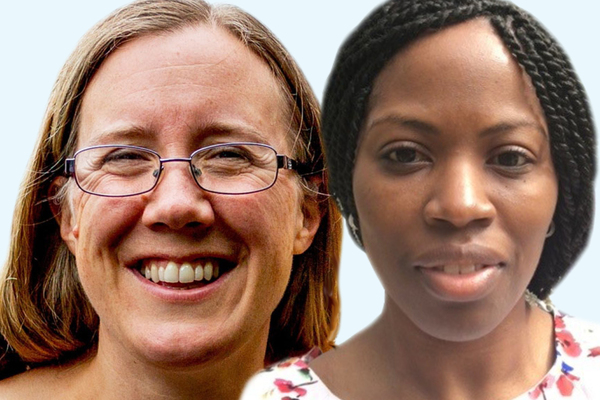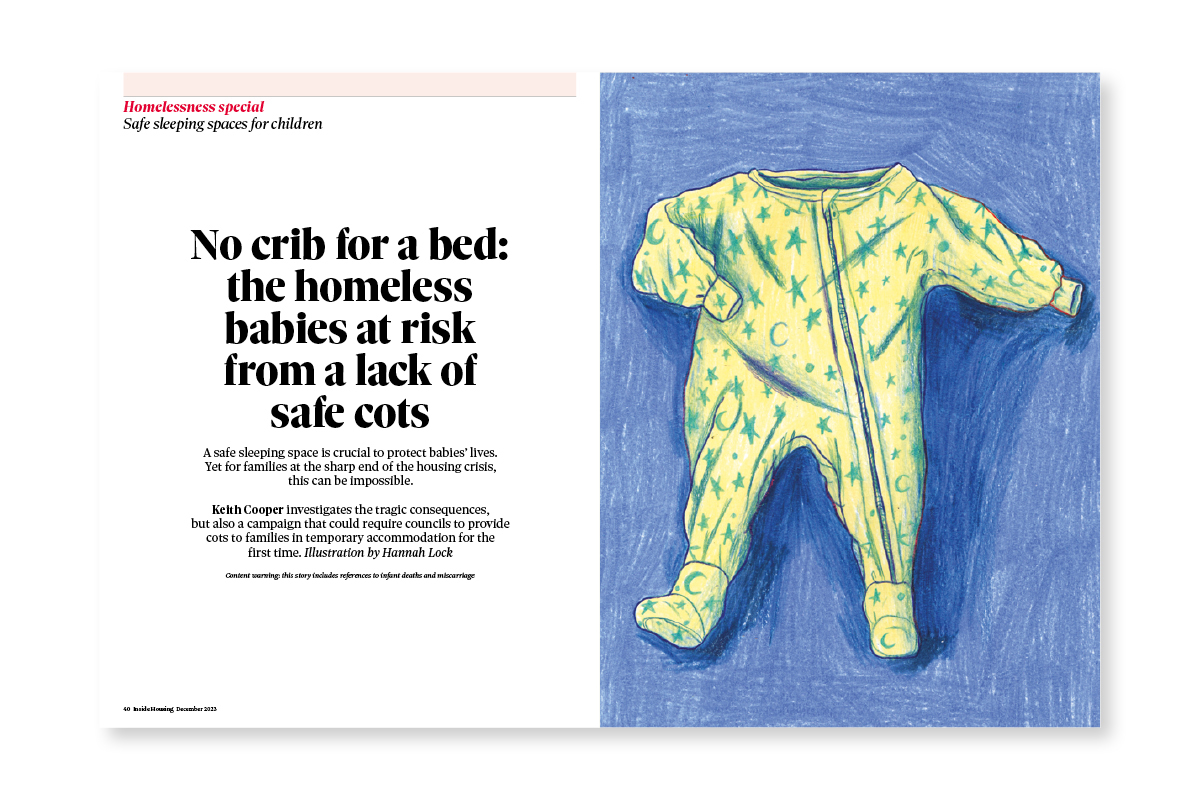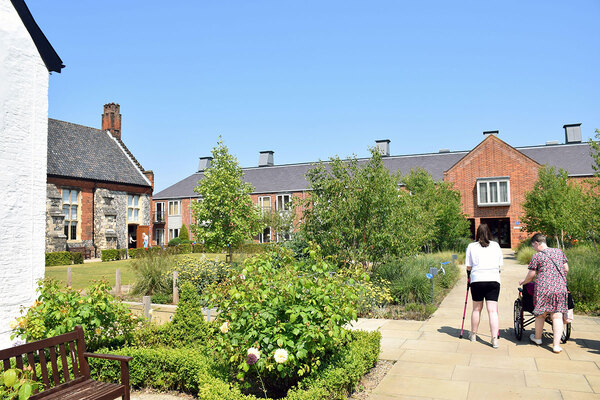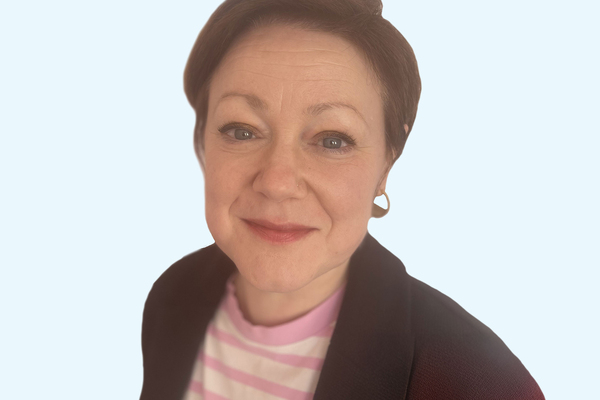The doctor-turned-campaigner for homeless children
Last year, the Shared Health Foundation’s campaign led to the government changing its guidance on providing cots in temporary accommodation. Katharine Swindells speaks to chief executive Dr Laura Neilson about the next stage in the mission
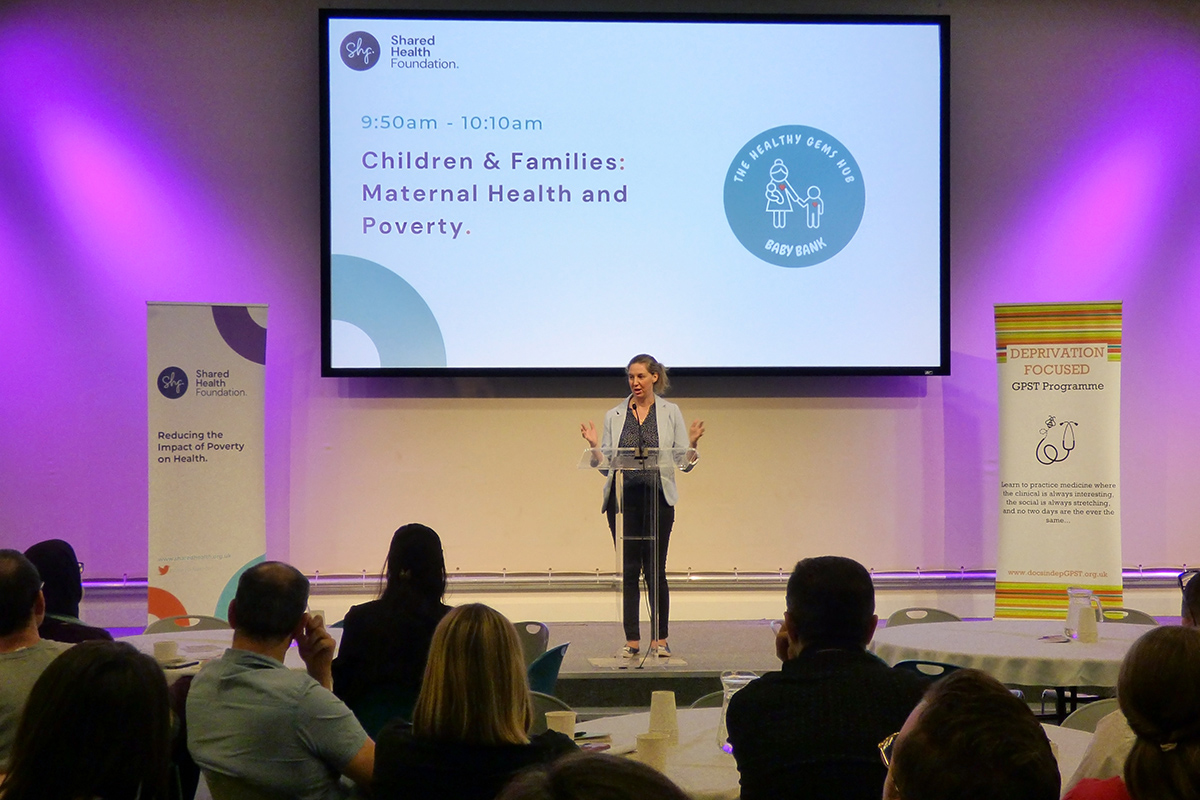
![]()
Around seven years ago Dr Laura Neilson was at a GP practice in Oldham, looking at a list of local children who had not had their immunisations, and noticed something strange. The list included 17 children who were not vaccinated, with different last names but all living at the same address. How could that be possible?
“The penny dropped – these children who weren’t immunised were at a temporary accommodation address,” Dr Neilson explains.
“So we knew quite early on, from a clinical perspective, that these were kids who weren’t engaging in health services, who were not vaccinated. And then from there that sparked [the question of], ‘What else is going on for these kids?’”
Over the years during her A&E shifts as an emergency paediatric doctor, Dr Neilson had seen young children coming in with strange injuries: burns from radiators, or breaks and bruises from falling down stairs or off a bed. When she asked the parent why they did not have a radiator cover, or a stair gate, or a cot, they would tell her that they were in temporary accommodation.
But it was still a topic that she did not know much about. “I didn’t understand what temporary accommodation was. I thought temporary was temporary… As a doctor, you don’t get taught anything about housing really,” she explains.
In 2016, Dr Neilson was asked by The Oglesby Charitable Trust to set up the Shared Health Foundation, a health and poverty charity, to tackle health inequality caused by poverty, due to her work as chief executive of Hope Citadel Healthcare, which runs 10 GP practices in areas of high deprivation in Manchester.
So children in temporary accommodation became one of Shared Health’s first projects, and it started by drawing up a list of living standards for temporary accommodation where children live. Dr Neilson says: “That was seven years ago, and I really didn’t think we’d still be talking about it.
“Ignorance is bliss in some ways, isn’t it? I remember saying that we’d probably only need to put resources into this for 18 months. It was just naive.”
Since the beginning of that project, the Shared Health Foundation has become a formidable campaigning force. The organisation is the co-secretariat of the All-Party Parliamentary Group (APPG) for Households in Temporary Accommodation, has campaigned on the number of child deaths linked to stays in temporary accommodation, and successfully persuaded the government to update the guidance on providing cots in temporary housing.
However, the safety of homeless children is still a pressing issue. The latest Inside Housing data revealed that 36,900 households with children aged under five are living in temporary accommodation.
We meet just across the square from parliament in the small cafe in the basement of the Supreme Court. Dr Neilson had just finished giving evidence at the Housing, Communities and Local Government Select Committee’s first evidence session into the issue of children living in temporary accommodation.
She told the committee: “I work one day a week in A&E, and in the last year I’ve seen a child with a femur fracture, a child with a skull fracture, a child with significant burns and lots of children with respiratory conditions, all of it caused by their social conditions.”
Dr Neilson is quick to admit that she is not a natural campaigner. She grew up in Hertfordshire and went to private school, so by her own admission “hadn’t encountered poverty at all until my late teens”. During her gap year, she went to Manchester and worked on a church project in Harpurhey, which opened her eyes to the inequality in the world. Despite the culture shock, she stayed in Greater Manchester to get her medical degree and has been there ever since, and all her children have been born and raised there.
When she first came across the evidence in her A&E and GP surgery about how temporary accommodation was affecting the health of children, Dr Neilson says her first instinct was to step away because she did not have any housing or policy experience. “I kept thinking at some point other people will step forward into that space, but that didn’t happen. And the more that there was silence, that made me more angry.”
Now, she sees her outside-sector status as a useful perspective. “We’ve got a phrase in medicine called ‘other people’s x-rays’. It’s the idea that you’re looking at an x-ray and you can’t see the fracture on it because you’re staring almost too close, and someone walks past and goes, ‘There it is.’”
36,900
Households with under-fives in temporary housing
4,700
Households with children under five staying in B&Bs
The Shared Health Foundation has a number of projects, including one on youth mental health, a scheme that trains doctors on working in deprived communities, and a local project supporting patients in primary care with complex and chaotic lives.
One of these projects is The Crib. Based out of the John Street Medical Practice in Oldham, the project provides care packages for families living in temporary accommodation, counselling for parents, and support with the homelessness process. When it first opened in 2021, Dr Neilson said she thought it would only be a few hours a week, but demand ended up being far higher than expected.
“I’ve got a real soft spot for kids, my own children call me the baby radar because I can spot a buggy 300 yards down the street,” Dr Neilson says. So interacting with the families at The Crib is a joy in many ways, but it also makes the issue feel even more personal. “Parenting in these situations is unimaginable. I cannot imagine bringing my kids up – three boys – when they were at their height of wrestling and chaos, doing that in one room, while also trying to work out, ‘How do I cook food? How are we going to get to school the next day?’”
Shared Health is almost entirely funded by The Oglesby Charitable Trust, and Dr Neilson says the ability to pilot different projects is a “real blessing” without the funding and bureaucratic restrictions of the public sector. “You can spot something and have a go.”
But, of course, the goal is always to find scalable solutions, so Shared Health started to think about how it could take the learnings from The Crib to create wider change. “If we managed to get all the kids out of temporary accommodation, it would be my joy to close our homeless families project.”
When someone suggested that the foundation start an APPG, Dr Neilson had “never heard of one”. In early 2022, Shared Health joined forces with temporary accommodation charity Justlife, where Dr Neilson is a founding trustee, as co-secretariats of the APPG for Households in Temporary Accommodation.
On the APPG, Dr Neilson says: “It’s been really fascinating to see how you can bring change through politics. There’s lots of change mechanisms to society, but politics is definitely one of them, and it’s been an arena that we’ve really been able to speak into and shine a light on these kids.”
Christa Maciver, head of research, policy and communications at Justlife, says: “Laura has an incredible ability to talk about the challenges facing families in temporary accommodation, with the authority of a health professional and the care of someone who has compassion for those impacted by health inequalities.”
Saving lives
One of the Shared Health Foundation’s other key collaborations on this issue is with the National Child Mortality Database (NCMD). This a project at the University of Bristol and funded by the NHS to gather and analyse information on all child deaths in England.
“As a doctor, one of the basic questions you ask in medicine very early on is, ‘What’s the mortality rate?’” Dr Neilson says. “So I just asked the question, ‘What’s the mortality of children in TA [temporary accommodation]?’ And I found that there wasn’t any published data, which is unusual in healthcare.”
When Shared Health approached the database, Dr Neilson thought it would just be dismissed as “some tiny organisation up North who was asking an irritating question”. But the opposite happened. NCMD analysed its database and uncovered that between April 2019 and March 2023, homelessness and temporary accommodation had contributed to the deaths of at least 55 children. Of those 55 children, 42 were less than a year old.
The collaboration did not stop there. The database has now changed its data collection method so that the numbers can be even more accurate. “For an organisation as clever and brilliant as the National Child Mortality Database to make that change, that’s the kind of humility that is so amazing to see,” Dr Neilson says.
The latest data is due early next year, and Dr Neilson anticipates the number will have increased significantly due to the improved data quality as more information comes to light about past deaths, but also because more children are in temporary accommodation than ever.
This data collection and transparency is vital, Dr Neilson says, in a political system where public authorities can be resistant to bad press. However, she is quick to say: “The mission is not to solve the spreadsheet. The mission is to solve the problem.”
Using the child mortality data, Shared Health shed light on the danger of sudden infant death syndrome posed to infants without a safe place to sleep, and lobbied for all children under two in temporary housing to be provided with a cot. In March 2024, the campaign was successful, and the Homelessness Code of Guidance for Local Authorities was updated.
“I think that was a really interesting moment of change where I think I started to believe that change was possible,” Dr Neilson says. “Before that it felt a bit kind of like talking to the wind.”
Dr Neilson has a laundry list for the new government – starting with the cot guidance being made statutory. She is adamant that homeless families in temporary accommodation must be housed separately from single homeless men, which she says is a “significant safeguarding risk that we have not addressed as a society”. She also wants to see a nationwide adoption of duty to a child, to stop councils and departments “arguing among each other while there is a child sat in the middle with nowhere to live”.
Dr Neilson says the current state of affairs – with local authorities overworked, understaffed and nearing bankruptcy – needs to be a tipping point to demand a more nuanced conversation on how money is spent.
“If you poured loads more money into this problem, would you solve it?” she asks. “I totally understand the councils saying, ‘We’re drowning, give us more money,’ but at the moment, you’d be giving more money into a very expensive system that has really poor outcomes. So that’s not going to change the system or the outcomes.”
While the Labour government is “making all the right noises”, she is concerned about the overwhelming focus on housebuilding, which can only help in the long term.
“I’d like to see a proper commitment to seeing child homelessness reduced [and] I’d like to see a commitment to a significant reduction in mortality,” Dr Neilson says. “These kids who are in temporary accommodation now can’t wait that long, so there has to be some kind of plan.”
Other Reset Homelessness articles
Reset Homelessness: ‘The system cannot continue as it is’
Inside Housing and Homeless Link’s new campaign, Reset Homelessness, calls for a systemic review of homelessness funding in England. But how has spending on the homelessness crisis gone so wrong? Jess McCabe reports
Homeless, vulnerable, but not a priority
As local authorities struggle with the mounting numbers of people turning to them for homelessness help, many are being deemed ‘not priority need’, and left to fend for themselves. Katharine Swindells investigates
An opportunity to do better on homelessness services
As homelessness rises 14% in one year, almost half of homelessness providers say they may need to reduce services or close. In response, Inside Housing and Homeless Link’s new campaign calls for the government to ‘Reset Homelessness’. Deputy editor Jess McCabe explains more about our upcoming plans
Sign up for our homelessness bulletin
Already have an account? Click here to manage your newsletters
